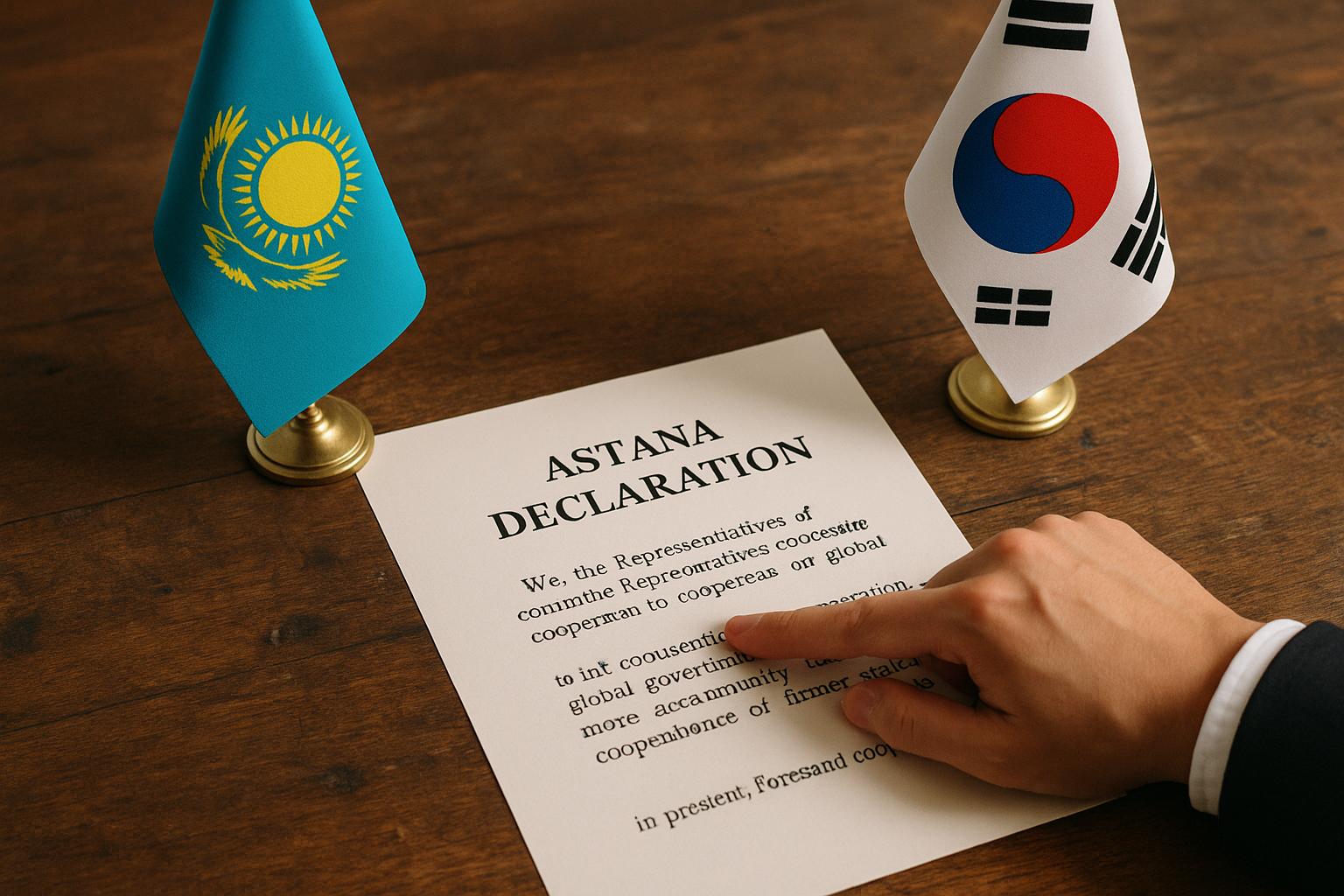Global experts, diplomats, and policymakers gathered in Astana, Kazakhstan for the second Astana Think Tank Forum, spotlighting the critical role of middle powers in an increasingly polarized international landscape. Held over two days in mid-October 2025 and hosted by the Kazakhstan Institute for Strategic Studies, the forum convened participants from 20 countries, including China, South Korea, the United States, and Kazakhstan itself. The event aimed to explore practical approaches to restoring trust and dialogue amid global geopolitical divisions and to reinforce a rules-based international order.
Opening the forum, Magzum Mirzagaliyev, an adviser to the Kazakh President, described polarization as a defining challenge of contemporary international relations, eroding both interstate and societal trust. He emphasised dialogue and engagement as indispensable tools for navigating uncertainty and underscored Kazakhstan’s ambition to serve as a neutral convener, fostering unity in a fractured global governance environment.
Central to the discussions was the evolving role of middle powers—countries like Kazakhstan and South Korea—that can bridge divides and promote cooperation. Yerzhan Ashikbayev, Kazakhstan’s first deputy foreign minister, highlighted his country's proactive diplomacy, including its proposal to the United Nations to create an International Agency for Biological Security aimed at pandemic prevention and countering bioterrorism. Such initiatives embody the expanded responsibilities and influence middle powers are assuming in global affairs, particularly in preserving peace and advancing sustainable development.
The forum underscored the limitations of legacy international institutions, which were often designed for a post-World War II world order characterized by fewer dominant powers. Joshua Lincoln, a senior fellow at Tufts University’s Fletcher School of Law and Diplomacy, explained that these institutions now face unprecedented challenges in a highly interconnected, multipolar world, complicated by digital, nuclear, human rights, and climate crises unanticipated in 1945. Lincoln called for a gradual, managed renewal of such institutions to avoid collapse, pointing to emerging groupings like BRICS and the Shanghai Cooperation Organisation (SCO), which promote sovereignty and multipolarity but currently lack effective enforcement mechanisms. Smaller regional frameworks offer faster coordination but risk deepening fragmentation. Kazakhstan’s simultaneous participation in multiple such groupings illustrates the diplomatic balancing act required moving forward.
Charles McLean of the U.S.-based Borderless Consulting Group further stressed the need for multilateral institutions to enhance their leverage to tackle global challenges more effectively. He argued that while values and forums are abundant, concrete tools and swift action are lacking. McLean identified Kazakhstan and South Korea as emerging middle powers capable of fostering trust and dialogue, particularly as the era of dominant power blocs like the U.S. and Russia recedes in favour of a more multipolar international system.
South Korea’s engagement in Central Asia exemplifies pragmatic diplomacy oriented around shared developmental goals rather than ideology. Rhee Jong-kook, executive director of the Korea Foundation’s Korea-Central Asia Cooperation Forum Secretariat, noted Korea’s partnerships in areas such as industrial modernisation, transport, health, climate change, energy, education, culture, and tourism. Reflecting the diplomatic approach of the current Lee Jae Myung administration, these collaborations prioritise national interest and practical cooperation, strengthening trust and multilateralism at a regional level.
The forum incorporated diverse thematic discussions on international security, nuclear disarmament, artificial intelligence, trade, transport, climate change, and water security, consistently reaffirming the centrality of middle powers in restoring global dialogue. Kazakhstan’s strategic geopolitical position enables it to act as a diplomatic bridge between East and West, complementing institutional efforts by the United Nations and others. This role builds on Kazakhstan’s expanding multilateral participation in bodies like the SCO and the Eurasian Economic Union, as well as Kazakhstan’s recent initiatives to advance new diplomatic platforms, marking the country as a hub for innovation in international cooperation.
Such forums follow Kazakhstan’s wider strategy to solidify its status as a neutral ground for international dialogue—a vision expressed by President Kassym-Jomart Tokayev in previous calls for solidarity among middle powers to address global peace and stability challenges. The Astana Think Tank Forum thus serves as a manifestation of this ambition, providing a platform to pilot new ideas for governance in a rapidly changing world order.
The prominence of new middle powers like Kazakhstan and South Korea in addressing issues overlooked or stalled by traditional institutions signals a paradigm shift. It suggests that, through pragmatic diplomacy rooted in trust and partnership, fragmented global governance can find pathways toward rejuvenated multilateralism and collaborative problem-solving in an era defined by complexity and uncertainty.
📌 Reference Map:
- Paragraph 1 – [1], [2]
- Paragraph 2 – [1], [2]
- Paragraph 3 – [1], [3], [4]
- Paragraph 4 – [1]
- Paragraph 5 – [1]
- Paragraph 6 – [1], [6]
- Paragraph 7 – [1], [4], [7], [3]
- Paragraph 8 – [1], [3], [4]
Source: Noah Wire Services
